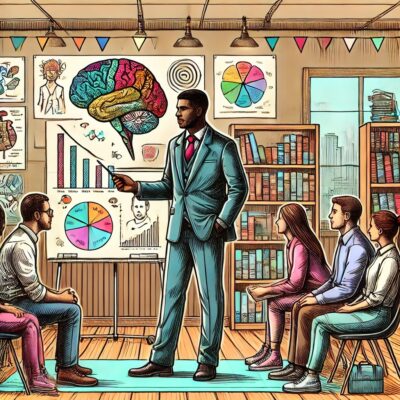Behavioral economists study how psychological, emotional, and social factors influence economic decision-making. They use insights from psychology and economics to design policies, strategies, and interventions that guide behavior in markets and organizations.
What is a typical day as a Behavioral Economist?
– Conducting research to understand consumer behavior, decision-making, and biases
– Designing and analyzing experiments to test economic theories and interventions
– Preparing reports, presentations, or policy briefs for governments or organizations
– Advising businesses or policymakers on strategies to improve outcomes, such as increasing savings or reducing inefficiencies.
What else might they be expected to do?
– Collaborate with marketing teams to develop consumer-focused campaigns
– Work with public health agencies to design behavioral interventions, such as improving vaccine uptake
– Train teams in behavioral science principles for better organizational decision-making
What type of training is needed for this career path?
– A Bachelor’s degree in Economics, Psychology, or a related field is required.
– A Master’s or Ph.D. in Behavioral Economics, Experimental Economics, or Cognitive Psychology is often necessary for advanced roles.
– Proficiency in statistical analysis and experimental design is essential.
What kind of personality is needed to excel in this career path?
– Analytical, curious, and innovative individuals excel in this role.
– Big 5 traits: Openness and Conscientiousness.
– Myers-Briggs types: INTP or INTJ often align with this career.
What kind of interests do people in this career path have?
– Passion for understanding human behavior and improving economic systems (Investigative and Enterprising traits).
– Interest in research, problem-solving, and public policy.
– Interests & Aptitude: Investigative (I), Social (S), and Enterprising (E)
Are there any innate skills or aptitudes required?
– Strong analytical and critical-thinking skills for interpreting behavioral data
– Communication skills to present complex ideas to diverse audiences
– Research and experimental design expertise for testing behavioral theories
What challenges can I expect to face if I pursue this career path?
– Balancing academic rigor with practical applications in policy or business
– Addressing resistance to behavioral interventions from stakeholders
– Navigating ethical considerations in influencing behavior
What are the job prospects for this path in Kenya and Africa? What about International prospects for a Kenyan citizen?
– Kenya and Africa: Growing demand for behavioral economists in government, NGOs, and financial institutions addressing issues such as savings, credit access, and health behavior.
– International: Behavioral economists are highly sought globally in areas like public policy, market research, and organizational development. Kenyan professionals with advanced training can access opportunities in think tanks, international organizations, or consulting firms.
What should I focus on if I choose to pursue this career?
– Gain expertise in behavioral science through coursework and experimental research.
– Develop strong skills in data analysis, using tools like R or Python.
– Stay informed about emerging applications of behavioral economics in various industries.
Which other careers or job roles can I progress to?
– Policy Advisor in Behavioral Insights
– Marketing or Consumer Insights Specialist
– Research Scientist in Behavioral Science
– Academic Lecturer or Researcher
– Organizational Behavior Consultant

